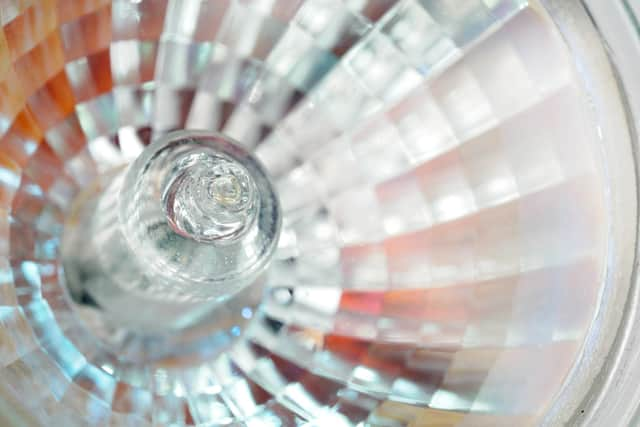Halogen and fluorescent light bulbs to be banned in UK homes as part of new climate plans
This article contains affiliate links. We may earn a small commission on items purchased through this article, but that does not affect our editorial judgement.
and live on Freeview channel 276
Halogen and fluorescent light bulbs are to be banned in a switch to green alternatives under Government climate plans.
The move will cut 1.26 million tonnes of carbon emissions a year and is part of tighter energy efficiency rules which will help save consumers £75 a year, the Business Department said.
Advertisement
Hide AdAdvertisement
Hide AdWe want to hear from you: let us know what you think about this story and be part of the debate in our comments section below


The sale of higher-energy halogen light bulbs began to be phased out in the UK in 2018 under EU-wide rules.
Retailers will now no longer be able to sell most remaining halogen bulbs, such as kitchen spotlights, from September 2021.
It will help continue the shift to low energy LED lightbulbs, which already account for around two thirds of lights sold in Britain, and is expected to mean LEDs will account for 85% of all bulbs sold by 2030, officials said.
Advertisement
Hide AdAdvertisement
Hide Ad

LED lights last five times longer than traditional halogen bulbs and produce the same amount of light, but use up to 80% less power.
Changes to energy labels
To help people to choose the most efficient lightbulbs, changes to the energy labels that consumers see on bulb packaging are being brought in, with the A+, A++ and A+++ ratings abandoned and efficiency graded between A-G, with only the most efficient bulbs given an A rating.
Legislation will also include moves to phase out high-energy fluorescent lightbulbs, such as strip lights commonly found in offices, with a view to bringing an end to their sale from September 2023.
Officials said LED bulbs could be incorporated into the fluorescent light fittings as a more energy efficient alternative.
Advertisement
Hide AdAdvertisement
Hide AdTogether the new rules will stop 1.26 million tonnes of carbon being emitted every year – the equivalent of removing more than half a million cars from the UK’s roads, the Business Department said.
It is part of a package of measures which will save consumers money and include the right to get goods repaired, new energy labels and higher efficiency standards for white goods, TVs and other appliances.
‘This will significantly help the UK on its journey to decarbonisation’
Energy minister Anne-Marie Trevelyan said: “We’re phasing out old inefficient halogen bulbs for good, so we can move more quickly to longer-lasting LED bulbs, meaning less waste and a brighter and cleaner future for the UK.
“By helping ensure electrical appliances use less energy but perform just as well, we’re saving households money on their bills and helping tackle climate change.”
Advertisement
Hide AdAdvertisement
Hide AdStephen Rouatt, chief executive of Signify UK, which owns Philips lighting, said: “Using energy-efficient LED equivalents for halogen and fluorescent lighting on an even broader scale will significantly help the UK on its journey to decarbonisation, as well as lowering the annual electricity bills for consumers.”
A message from the editor:
Thank you for reading. NationalWorld is a new national news brand, produced by a team of journalists, editors, video producers and designers who live and work across the UK. Find out more about who’s who in the team, and our editorial values. We want to start a community among our readers, so please follow us on Facebook, Twitter and Instagram, and keep the conversation going.
Comment Guidelines
National World encourages reader discussion on our stories. User feedback, insights and back-and-forth exchanges add a rich layer of context to reporting. Please review our Community Guidelines before commenting.
